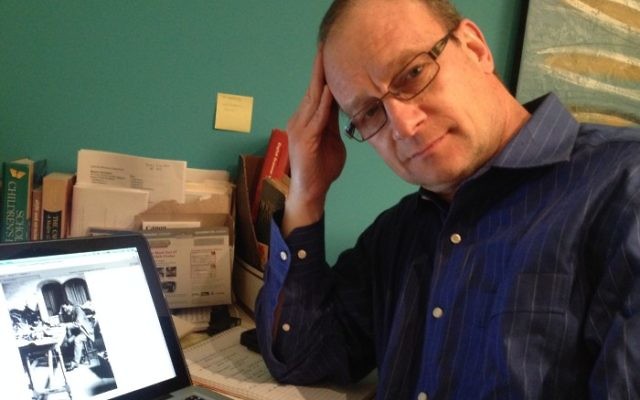Working Without the Dictates of Passion
Dave attempts to explain how he tries to maintain standards he sets for himself in his chosen profession.
Dave Schechter is a veteran journalist whose career includes writing and producing reports from Israel and elsewhere in the Middle East.
I stand accused by a reader of being an “unrepentant” supporter of a particular political party. I am neither an unrepentant nor repentant supporter of that or any political party.
My last political act was committed in 1972 and did not involve a presidential campaign. There was a humorous Jewish angle connected to it, but that’s a story for another time.
I do not sign petitions. I do not wear buttons or display bumper stickers, though I do have a stash of memorabilia. I do not make campaign contributions. I no longer vote in primaries, and debate whether I should (as a citizen) or should not (as a journalist who occasionally reports on politics) vote in general elections.
As for partisan leanings, in a column a couple of years ago I said, “I rise in defense of the ‘muscular moderate.’ I like the term. I aspire to it.” With a nod to historian Gil Troy, from whom I borrowed the term, I wrote that “Muscular moderates expose themselves to differing points of view, but resist the temptation to demonize those with whom they disagree.”
Furthermore, “What partisans see as clarity, moderates see as being blinded to any but their own beliefs. What partisans see as passion, moderates see as an appetite for confrontation.”
I don’t subscribe to the news business adage that if you upset people on both sides of a story, you must be doing the job right.
I differentiate between facts and truth. There are not, however, as some have suggested, “alternative facts.”
To John Adams, second president of the United States, is attributed this statement: “Facts are stubborn things; and whatever may be our wishes, our inclinations, or the dictates of our passion, they cannot alter the state of facts and evidence.”
From where I sit, truth is where facts are blended with “the dictates of our passion” to create a personal interpretation that each may hold fast, one that might feed an appetite for confrontation. I find this borne out in social media posts, some which truly warrant repentance.
Journalism asks its practitioners to report facts, but also to put them in context, to explain how one fact relates to another, or what action may result from a particular statement or action. That’s not the same as opinion. What personal perspective I choose to share is done in this column, labeled as opinion, not in other articles I write.
I have opinions, but do my damndest, and have done my damndest throughout my career, to check those at the proverbial door, no differently when I held positions of responsibility in newsrooms, or now, working from home. I have my standards; each journalist must determine those for themselves.
Yes, it has become too easy, particularly in the world of cable news, for some to dance back-and-forth as if there are no lines. This only confuses the consumer of news.
A federal judge recently ruled that the host of a popular cable news program “is not ‘stating actual facts’ about the topics he discusses and is instead engaging in ‘exaggeration’ and ‘non-literal commentary.’” For good measure, the judge wrote that “any reasonable viewer arrive[s] with an appropriate amount of skepticism about the statement he makes.”
No disrespect, your honor, but there are otherwise reasonable people who not only believe that this host presents “actual facts” but repeat them as such.
Which brings me to “fake news,” a complaint often prompted by the reporting of information provided by people who do so on condition that they not be identified. Reporters and editors must judge the motivation of such sources and the importance of what they offer.
This may be the unnamed “senior official” who makes newsworthy statements, but not for attribution, which happens more frequently in the upper echelons of the federal government than most of the public realizes. It could be someone attempting to influence policy, or with a personal axe to grind, or who simply is willing to share inside information out-of-school, risking retribution if found out.
This does not mean that the news is “fake,” no matter how much it rubs against the dictates of personal passion.
Sometimes, this is the only way to find out how tax dollars are being spent, how a polluter is evading punishment, how a miscarriage of justice has been committed, or how a public servant is doing something for personal gain.




comments